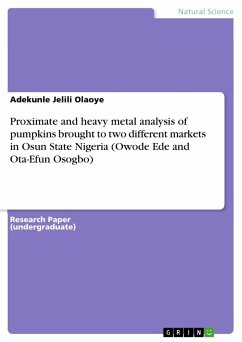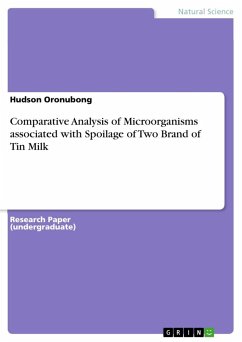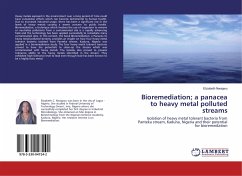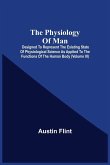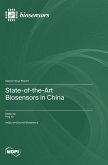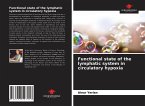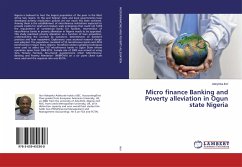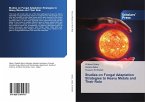Research Paper (undergraduate) from the year 2016 in the subject Biology - Miscellaneous, grade: 3.2, , course: PURE AND APPLIED CHEMISTRY, language: English, abstract: Proximate and heavy metal analysis were carried out in the leaves of pumpkin bought in two different market in Osun State Nigeria (Owode Ede and Ota-Efun Osogbo). The result of the proximate analysis showed that the leaves contain: Moisture (2.88 % and 2.53%), Ash (14.45% and 13.90%), Crude Fibre (2.6 % and 2.3 %), Fat (13.20 % and 12.85%), Protein (25.66 % and 25.40 %) and Carbohydrate (41.21 % and 43.02 %) respectively for A and B. This shows that the pumpkin leaves could be used as food to supplement these nutrients. The result of heavy metal analysis using (AAS) analysis reveals that concentration of Zn (2.32 mg/g and 1.76 mg/g), Cu(1.55 mg/g and 1.05 mg/g), Fe (5.98 mg/g and 5.30 mg/g) and Mn (0.21 mg/g and 0.16 mg/g) for A and B respectively. Because of high concentration of Zn and Fe, it was concluded that pumpkin leaves could be a good source of energy and proteins for human and animals.

